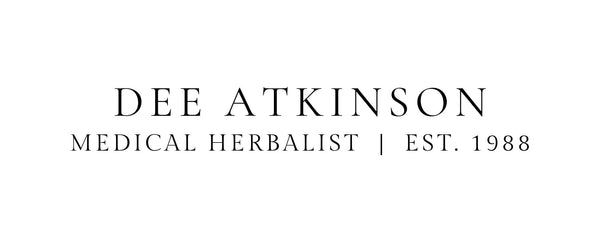By Dee Atkinson, FNIMH
One of the things I have observed in clinic over the years is the connection between our overall health and our gut health. Time and again a patient will come in with, say, a skin problem or an issue with their joints, and in the course of the consultation it emerges that they are constipated or have abdominal wind and bloating. Dig a little deeper, and a link to the gut is often there.
The digestive system does much more than just help us to digest and eliminate food. We have all heard the old adage that your health is not so much about what we eat, but about what we absorb. It’s not just that we might not be absorbing all the good nutrients from the food we eat, in fact, it’s more accurate to consider that, alongside the good nutrients, we are also absorbing a whole host of bad things from our diet.
The Gut Microbiome
The internal make up of our gut is known as our microbiome. This is a unique collection of gut flora that populates our intestines and contributes to our immunity. It affects a wide range of health issues as divergent as mental health, joint health, skin health and hormones. The lining of our gut is the main protective barrier between the outside world and our body’s delicate inner world. The foods we eat, and the chemicals they contain, are exposed to the microorganisms in our gut which, in turn, form part of our immune system. This microbiome influences our reactions to foods and whether we develop food sensitivities, inflammatory conditions or chronic diseases.
Many people think of our gut from top (mouth) to tail (the other end) as a nice protective tube, allowing effective absorption of the right nutrients from our food. But it’s not quite that simple. Yes, our gut has an important role in facilitating absorption across the gut wall membrane, to allow us to get nutrition from our food, with rows of enterocytes cells regulating what gets across the intestinal lining. These cells have tight junctions between them, which should only be permeable to certain small molecules.
But what happens if this barrier is damaged or weakened in any way? It’s then that the types of molecules that can pass through changes, and we have what is called Leaky Gut Syndrome. Another way of thinking about this is to imagine an area of tissue that is sore or inflamed in some way and, as a result, it immediately ceases to function like other similar ’normal’ tissue around it. Long term exposure to foods or medications that inflame the gut can trigger irritation and this is Leaky Gut Syndrome.
A correct microbiome is one of the keys to a healthy gut. An all too common problem nowadays is damage to gut bacteria from antibiotics which disrupts the microbiome and can trigger Leaky Gut. The joins between the enterocytes loosen and particles of proteins and bacteria get into the closed body system, triggering allergic reactions and immune responses.
In clinical terms, the presentations can be varied. It can be fairly straight forward and obvious when, during a consultation, the patient mentions long term use of antibiotics or previous incidents of food poisoning. In these cases, the link with Leaky Gut is clear. However, in other situations it is less obvious. Cancer treatments, poor diet, stress levels and even environmental toxins can all affect the gut microbiome.
A few key gut imbalance indicators are:
1. Long term antibiotic use.
2. Suffering from ‘IBS’. In my view this is not a disease, but a loose term to describe a set of symptoms which include bloating, wind, loose stools or constipation.
3. Suffering from thrush or other yeast problems. SBBO (Small Bowel Bacterial Overgrowth).
3. A feeling that you are sensitive to certain foods.
4. Skin problems, especially psoriasis, eczema and acne rosacea.
5. Hayfever or allergies.
6. Some autoimmune problems, especially those relating to joints.
7. Mood swings and problems concentrating.
8. Problems losing weight.
A word of caution
There are few absolutes in medicine and whilst the above is a list of possible symptoms of a Leaky Gut, they are also symptoms of other health issues. There is a huge overlap with health and the Herbal Consultation is an interview to try to find the links and develop a treatment plan.
The Integrated Treatment Plan
Identify and eliminate:
I often work with our Nutritionist to try and develop an elimination diet and an action plan. Initially, it is all about detective work. We need to work out what the triggers are and may prescribe supplements (or sometimes medications) to eliminate yeast overgrowth. We can also use stool tests and blood tests to try and identify specific problems.
Repair and replace:
We will look at digestive support which includes digestive enzymes. You might also need some additional stomach acid in the form of a supplement called Betaine HCL. We may also use Slippery Elm as a prebiotic.
The probiotics:
A word here about the continually popular ‘probiotic drinks’ that are much advertised on TV. And that word is: useless.
You need a quality probiotic to restore your gut flora. You want it to have a minimum of 10-30 billion in each dose, and a good range of Lactobacillus and Bifidobacter species.
Fermented foods such as miso, sauerkraut, or kimchee are deliciously helpful in meals.
Herbs and supplements are best prescribed by a qualified medical herbalist and made up on an individual basis. Here is an example of what I might prescribe:
· Curcumin and Boswellia casules (Tumeric) - I've developed a specific practitioner brand product for my patients, which are also available over the counter at Napiers
· Herbal tea and/or tincture blends that include Marshmallow root, Yarrow, Golden Seal, Liquorice, Fennel, Chamomile and Marigold leaf are gently soothing and tissue healing .
· A good quality fish oil and antioxidant supplement.
